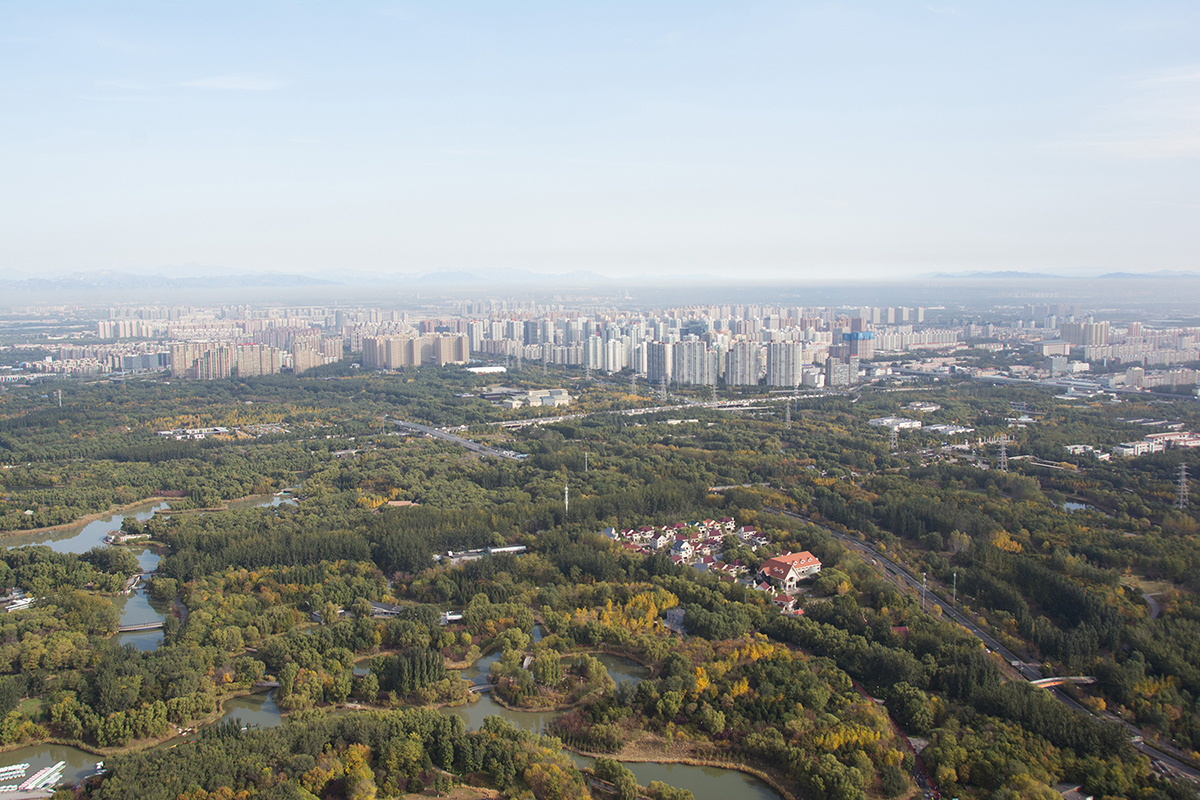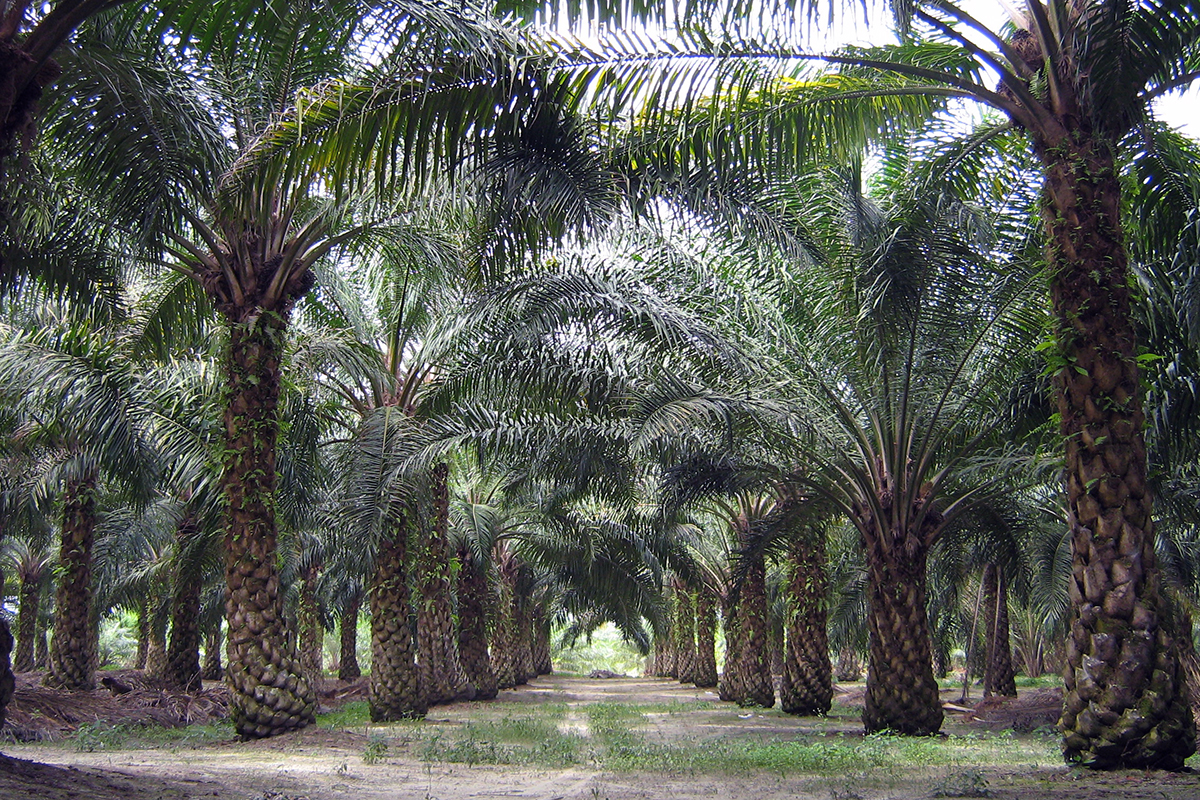"Land systems are the loci for sustainability transformations"
From 24 to 26 April 2019, over 600 leading scientists from all over the world will meet in Bern for the 4th Open Science Meeting of the Global Land Programme (GLP). Its theme: Transforming Land Systems for People and Nature – What research and policies are needed to achieve ecologically, socially, and economically sustainable land systems? Ariane de Bremond, senior research scientist at the Centre for Development and Environment (CDE) of the University of Bern and executive officer of the GLP International Programme Office, discussed the role of the conference.
Pressures on land resources are increasing worldwide. This raises questions about land use and the land systems needed for sustainability. What can a scientific conference like the Open Science Meeting (OSM) 2019 contribute in terms of solutions?
Ariane de Bremond: Science for transformations to sustainability demands new, collaborative approaches to knowledge creation. To enable sustainable use and governance of land worldwide, we have to bridge gaps between scientists, society, and decision-makers. So, a key goal of the 4th GLP OSM is to forge stronger partnerships between these actors. The conference brings together world-leading land scientists to debate challenges and identify policy spaces for land systems change that enable transformations to sustainable futures.
How can you begin to build these partnerships and identify these policy spaces?
Well, we start by framing the conference around three main questions – What are our visions for the planetary land system? What do people want from land? How do we support transformations? These questions demand concrete, policy-relevant answers. More broadly, the OSM 2019 offers land systems scientists a chance to push for research that informs how our societies navigate the inherent trade-offs and synergies of different land system pathways.

As you suggest, the GLP stresses the need for co-production of knowledge by scientists and non-science actors. But at the OSM 2019, it’s mainly scientists attending. Is GLP putting its own claim into practice?
In the past, GLP’s Open Science meetings were focused almost exclusively on science. Until 2015, GLP and the other Global Change Research Programmes were a part of the international global change research system. GLP was the only one at the time integrating social and ecological systems. Our task then was to develop the science of land systems. We’ve now entered a new phase, and the 4th OSM in Bern is the first to integrate new engagement formats. So, it’s clearly a step forward. Scientists still outweigh other attendees, but many of the new “innovative and immersive” sessions at this year’s OSM will include the direct participation of other societal partners.
For example?
For example, our session on “Industry perspectives on achieving zero-deforestation” includes the participation of private supply-chain actors like Goodhope Asia, one of the largest palm oil plantation companies. And our session on “Policy and governance of illicit and/or clandestine transactions and land use changes” includes civil society actors like Transparency international Zimbabwe, who works to build transparency around land use in the region. We weren’t sure how the GLP community would receive these new, collaborative sessions, but the response has been overwhelmingly positive. It shows there’s an openness to new approaches that go beyond academia.

What are the incentives for these outside actors to participate?
The world is getting increasingly complex and there is a broad desire out there to work across traditional sectoral boundaries. Societal actors also demand new partnerships. This conference provides an opportunity to build trust and common understandings.
Everyone is affected by land system issues: from food production to spatial planning, raw material extraction, nature conservation, protection against natural hazards, etc. In view of this complexity and associated trade-offs, is it even possible to design a coherent scientific programme in response?
We can develop a scientific programme or agenda that improves understanding of how we, as human societies, can design more sustainable land system architectures. Land system science is gradually transitioning from research about human–environmental systems to research for sustainable development of such systems. Land systems are the loci for sustainability transformations. Use of other, overlapping systems perspectives can help us identify levers for change, such as looking at value chains, for example related to palm oil. In addition, territorial or flow-based land systems perspectives can reveal how different actors shape policies based on their own specific interests.
GLP is one of four research projects of Future Earth, one of the largest research networks in the world. In addition to GLP, the Mountain Research Initiative (MRI), the Past Global Changes (PAGES), and the Global Mountain Biodiversity Assessment (GMBA) are also located at the University of Bern. What makes the University of Bern so attractive for the international research community on these topics?
The University of Bern has shown a longstanding commitment to nurturing centres of excellence on pressing issues of global environmental change, such as the Centre for Development and Environment (CDE) and the Oeschger Centre for Climate Change Research (OCCR). And the city of Bern hosts key members of the Swiss Academies of Arts and Sciences – especially the Swiss National Academies of Science, which has supported research on global environmental change for many years. So, Bern has become a hub of scientific excellence and has provided key platforms in support of such research. And CDE is a natural home for GLP, as their transformative missions largely mirror one another.
This interview was also published in the CDE magazine Spotlight.
Read more about the Open Science Meeting 2019 on the Global Land Programme website
ABOUT THE PERSON

Dr. Ariane de Bremond is a senior research scientist at the Centre for Development and Environment of the University of Bern and executive officer of the GLP International Programme Office.
Contact:
Dr. Ariane de Bremond
University of Bern
Centre for Development and Environment (CDE)
ariane.debremond@cde.unibe.ch
ABOUT THE AUTHORS
Gaby Allheilig is CDE’s Head of Communications. Dr. Brigitte Portner is Senior Research Scientist at CDE, and Senior Coordinator of the GLP Open Science Meeting 2019.